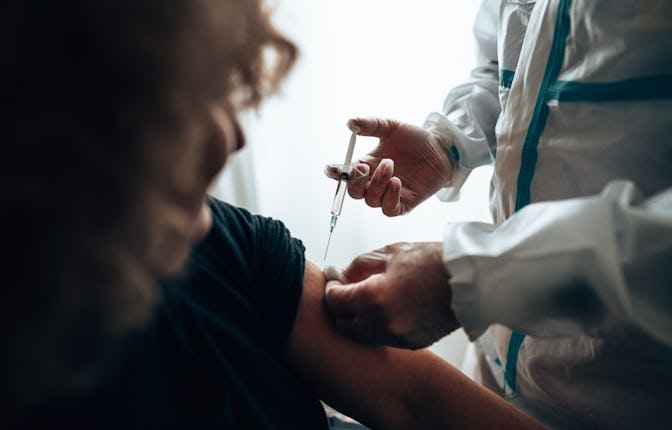New findings about Omicron make it seem a little less horrifying
Pfizer’s vaccine and antiviral pill seem to curb the worst outcomes of an infection from the new COVID strain.

The pandemic appears to have taken a scary turn with the emergence of the Omicron variant and the flurry of questions swirling around its transmissibility and ability to evade vaccines. But a handful of new findings are calming me down, at least somewhat. Firstly, researchers in South Africa found that Omicron may cause less severe disease than earlier variants and that Pfizer’s vaccine seems to protect against hospitalization with Omicron. Secondly, Pfizer’s COVID pill, Paxlovid, lowered the risk of severe disease in a clinical trial and worked against Omicron in laboratory studies.
Let’s start with the study in South Africa, where Omicron was first reported to WHO. Researchers from Discovery Health, the country’s largest health insurer, analyzed 211,000 people who’d tested positive for COVID, among whom 78,000 were infected with Omicron, the Washington Post reported. They announced today that the risk of hospitalization among COVID-positive adults was 29% lower than it was in during the initial pandemic surge in March 2020, suggesting that Omicron causes less severe disease than its predecessors.
Per the Post, the study also found that the two-dose Pfizer vaccine provided only 33% protection against Omicron — far less than the protection it provides against other variants found in South Africa. Here’s the thing, though: Pfizer may offer 70% protection against hospitalization with Omicron. That is, it could still do a good job preventing this severe outcome, which is the more pressing concern. The researchers saw this level of protection across all age groups, Discovery Health chief executive Ryan Noach said in a news briefing, according to the Post. Despite some caveats — hospitalizations could still swell as Omicron evolves, for example —the results are encouraging.
Now, let’s move on to the findings on Pfizer’s Paxlovid, meant to be taken after infection. The pharma giant had asked the FDA to authorize Paxlovid last month, the New York Times reported. Its latest findings, which it announced today, could bolster its application, possibly allowing us to have access to the pill in a matter of weeks.
In Pfizer’s analysis of 2,246 unvaccinated adult volunteers at high risk of severe COVID, Paxlovid lowered the risk of hospitalization and death by 89% compared to a placebo if given within three days of the onset of symptoms, according to a press release. The pill reduced that risk to an on-par 88% if given within five days of symptom onset.
And based on preliminary data on 662 adult volunteers at lower risk — vaccinated people with a risk factor for severe disease as well as unvaccinated people with no risk factors — there was a 70% decrease in hospitalization and no deaths in those treated with Paxlovid compared to those given a placebo, according to the Pfizer release.
While most of the volunteers in these trials were infected with Delta, Pfizer said in its release that Paxlovid worked well against the Omicron variant in the laboratory. But it’s important to note that because the researchers conducted this experiment in virus grown in the lab, the results might not neatly translate to the real-life scenario of humans infected with Omicron.
Also worth noting: The fact that Pfizer conducted these studies of its own drug means we should take the findings with a grain of salt. As Quartz pointed out, company-run studies may be accurate, but an independent, not-as-biased review could yield less promising results, as in the case of Merck’s COVID pill, molnupiravir.
Despite the caveats that accompany the latest findings on Omicron, I’m personally taking this moment to allow myself to feel hope, if only briefly. At a time when our anxiety is off the charts, it’s worth unclenching when we can.